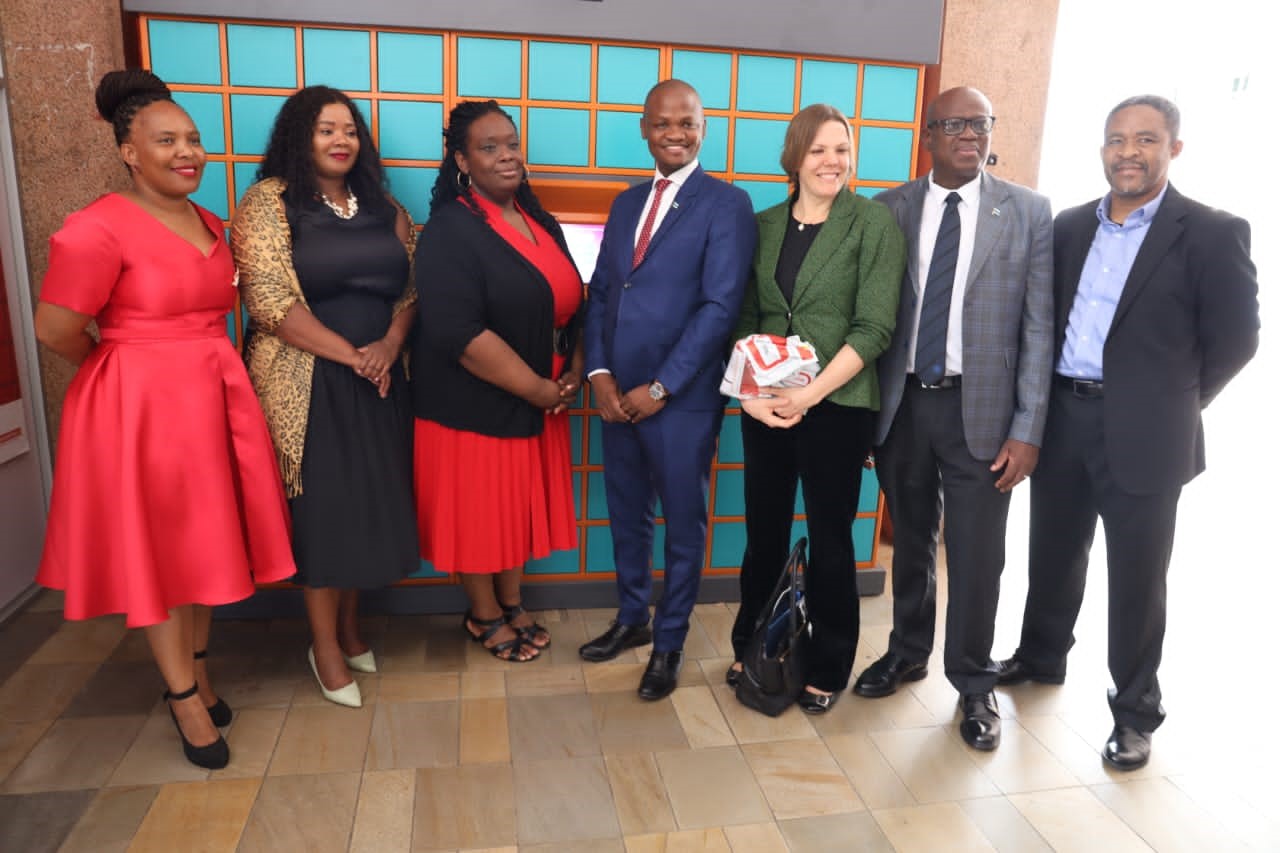Refilwe Kereng, FHI 360
Wame Dikobe, FHI 360
Masego Gilbert, FHI 360
Botswana was recently recognized at the International AIDS Conference for its achievement in reaching HIV epidemic control after surpassing the Joint United Nations Programme on HIV/AIDS (UNAIDS) 95-95-95 targets to reach 95-98-98 in July 2022. These results show tremendous progress toward achieving control of the HIV epidemic and demonstrate the extraordinary impact of the national HIV response. New innovations such as decentralized drug distribution (DDD) position Botswana to eliminate HIV as a public health threat in the next decade.
The Meeting Targets and Maintaining Epidemic Control (EpiC) project, a five-year global project funded by the U.S. President’s Emergency Plan for AIDS Relief (PEPFAR) and the United States Agency for International Development (USAID), works closely with the Ministry of Health (MOH) to provide technical assistance to retain people living with HIV in care.
This collaboration started in 2021, when access to health services was limited due to restricted movement policies to address the COVID-19 pandemic. Since then, EpiC has forged a strategic partnership with the Botswana Post Services (BPS), which is housed under the Ministry of Communication, Knowledge, and Technology, to procure and install e-lockers, a digital solution for health service.
These e-lockers, called Yarona (“For us” in Setswana), are used to dispense medication to clients with chronic conditions, including antiretrovirals (ARVs) for HIV treatment. This innovation offers clients the convenience of collecting medications outside working hours, thus preventing missed work or school, decongesting health facilities, and freeing up staff to provide better quality care to sicker clients.
The two lockers, which each have about 100 cubicles, are hosted by BPS at two sites; one is centrally located in the old business district main mall post office in Gaborone and the other in the Mogoditshane post office in the Greater Gaborone area, just outside the city. The lockers are estimated to serve about 2,000 clients monthly.
The e-lockers were launched on March 30 in Gaborone, with officiating by Minister of Health Hon. Dr. Edwin Dikoloti and Deputy Chief of Mission Amanda Jacobsen. According to the minister, “The concept of e-lockers means that patients will be able to access their chronic medications 24 hours per day and have the flexibility of choosing a time most convenient for them to collect their medication.” High-level officials from USAID, MOH, BPS, EpiC, and implementing partner organizations, as well as other dignitaries, attended. Closing remarks by the Hon. Thulagano Segokgo, Minister of Communication, Knowledge, and Technology, highlighted the inter-ministerial partnership, support from government, and multisectoral approach to addressing structural barriers by creating an enabling environment.
These partnerships between the host country and EpiC demonstrate Botswana’s commitment to enhance efficiencies through an integrated approach to reaching epidemic control by 2030.
Featured image: From left, Dr. Wame Dikobe, FHI 360 Country Representative/EpiC Project Director; Lillian Benjamin, Health Office Director USAID; Dr. Edwin Dikoloti, Honorable Minister of Health; Amanda Jacobsen, United States Deputy Chief Mission; Thulagano Segokgo, Honorable Minister of Communications, Innovation, and Technology; and Nathan Kgabi, Board Chair Botswana Post, attend the launch celebration for the e-lockers. Photo by Tshepo Maphanyane.

